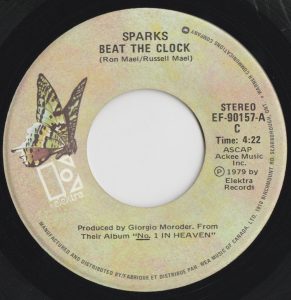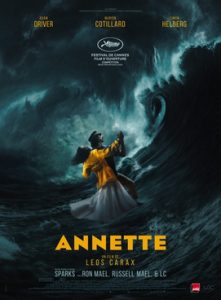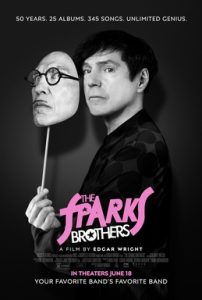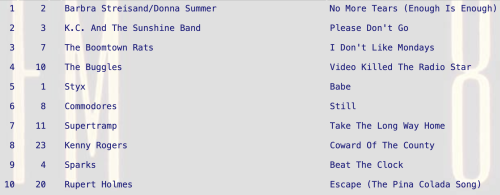#72: Beat The Clock by the Sparks
City: Ottawa, ON
Radio Station: CFRA
Peak Month: January 1980
Peak Position in Ottawa ~ #4
Peak position in Vancouver ~ did not chart
Peak Position on Billboard Hot 100 Singles ~ did not chart
YouTube: “Beat The Clock”
Lyrics: “Beat The Clock”
The Sparks were formed by two brothers in 1971 in Pacific Palisades, California. Ron Mael was born in Culver City, California, in 1945. Brother Russell Mael was born in Pacific Palisades (CA) in 1948. After high school, Ron began a course in cinema and graphic arts in 1963 while Russell studied theatre arts and filmmaking during 1966–1968. Ron Mael plays the keyboards and synthesizers and writes most of the songs for Sparks. When the band hit the peak of its popularity in the 1970s, he was well known for his strange appearance, often remaining motionless over his keyboard in sharp contrast to Russell’s animated and hyperactive frontman antics. Ron’s conservative clothes and unfashionable, Charlie Chaplin-esque toothbrush moustache attracted much attention. In 1972, they released their debut single “Wonder Girl”. The single stalled beneath the Billboard Hot 100 at #112.
In early 1974, the Sparks released “This Town Ain’t Big Enough For the Both of Us”. It charted in Europe and Australia that year. In March 1975, it began a chart run on CFGO in Ottawa where it reached #9. Internationally, the song peaked at #2 in the UK, #4 in Belgium and the Netherlands, #7 in Switzerland and #15 in France. The single was from their commercially successful third album Kimono My House – which peaked at #4 on the UK pop album chart. The duo had further success that year with another track from the album titled “Amateur Hour”. It climbed to #7 in the UK, and was a Top 20 hit in Ireland and West Germany.
The Sparks fourth studio album, Propaganda, reached #9 on the UK pop album chart, and the Top 20 in Norway. The album included a track inviting listeners to be more faithful to Mother Earth titled “Never Turn Your Back On Mother Earth”, which reached #13 in the UK.
In 1975, the Sparks released Indiscreet. The album peaked at #6 in Sweden and made the Top 20 pop album charts in the Netherlands, Norway, and the UK. Two more albums followed which were commercial failures.
The duo bounced back in 1978, with the disco-influenced “The Number One Song in Heaven” – written with Giorgio Moroder – peaked at #5 in Ireland. The single was the title track from their eighth album, No. 1 in Heaven.
A second track from the album was “Beat The Clock”.

The Mael brothers wrote “Beat The Clock”. The lyrics depict a pattern in the life of a person who gets ahead of the standard time of doing things to ‘beat the clock.’ They are born premature, because “mother couldn’t take no more” (of the pregnancy. Instead of waiting until the age of five to enter kindergarten, he starts school at age two. He gets divorced at the age of four. He wears out his two flat feet at the age of three, which is why the army rejected him.
The phrase ‘beat the clock’ is often associated with high-pressure situations where time is of the essence. In the early 20th Century, technological advancements such as railroads and telegraphs made it possible for people to travel and communicate faster than ever before. As a result, punctuality and efficiency became highly valued traits in both personal and professional settings. The phrase “beat the clock” originated from sports competitions that involved timed events, such as track and field races or basketball games. Athletes who were able to complete their tasks before time ran out were said to have “beaten the clock.” The term was popularized by the radio program Beat the Clock, which debuted in 1949 and later transitioned to television. The show involved contestants competing against time to complete various challenges or tasks before a buzzer sounded. It is often used in project management, business, and work-related settings to emphasize the urgency and importance of meeting deadlines. Over time, this expression evolved into a more general idiom that could be applied to any situation where timing was crucial.
The show began on radio as Time’s A-Wastin’ in 1948, hosted by Bud Collyer, and changed its name to Beat the Time on January 5, 1949. The show moved to television on the CBS nighttime schedule starting on March 23, 1950. With the shift from radio to TV, the name of the show changed again from Beat the Time to Beat the Clock. The TV show Beat the Clock has run on a variety of networks from 1950 to 1980, and from 2002-2003, and most recently from 2018 to 2019.
For Top 40 radio listeners in the winter of 1979-80, Beat The Clock was an iconic TV game show. The phrase had become well known after three decades of television exposure within North American culture. This was part of the background to the Sparks choice of the song title “Beat The Clock”.
Of note, “Beat The Clock” was produced by Giorgio Moroder.
“Beat The Clock” peaked at #4 in Ottawa, and #14 in Montreal. Internationally, it climbed to #10 in Belgium and the UK, and #16 in the Netherlands.
In 1980, the duo released “When I’m With You” which was a Top Ten hit in France, and #14 in Australia.
In 1982, the Sparks released their eleventh studio album Angst in My Pants. It included their single “I Predict”, which made the Top 20 on CHUM-AM in Toronto, and #60 on the Billboard Hot 100. In 1983, they released In Outer Space. The album track “Cool Places” featured Go-Go’s backing vocalist Jane Wiedlin. It became the Sparks second single to crack the Billboard Hot 100, reaching #49, and #13 on the Billboard Dance Club Chart in the USA.
The Sparks charted several more singles into the Top Ten on the Dance Club chart in the USA between 1986 and 1989. These were “”Music That You Can Dance To”, “So Important” and “Just Got Back From Heaven”. In 1994, a debut release from their sixteenth studio album Gratuitous Sax & Senseless Violins, titled “When Do I Get to Sing ‘My Way'”, was an international hit. It peaked at #7 in Germany, #8 in the Netherlands, #12 in Belgium, and #17 in Finland. It was also a Top Ten Dance Club hit in America.
Over the years, the Sparks have released several singles with provocative song titles. These include “Please Don’t Fuck Up My World”, “You Earned The Right to Be a Dick”, “Edith Piaf (Said It Better Than Me)”, “Lighten Up, Morrissey”, and “National Crime Awareness Week”.
The band premiered the radio musical The Seduction of Ingmar Bergman, in August 2009. It was commissioned by Swedish public radio (SR). In 2014, the Sparks brothers teamed up with Scottish musician Franz Ferdinand to form FFS. The supergroup released one self-titled studio album in 2015. FFS reached #8 in Scotland, #13 in the Netherlands, #17 in the UK, and #19 on the Swiss pop album charts.
In 2021, the Sparks wrote the score for the film Annette, starring Adam Driver and Marion Cotillard.

For their efforts Ron and Richard Mael won the Cannes Soundtrack Award at the Cannes Film Festival; won for Best Music at the Lumière Awards in Paris (FR); and won for Best Original Music at the French Ministry of Culture’s César Awards.
Also in 2021, a documentary titled The Sparks Brothers was released to critical praise.

In 2025, the Sparks released their 26th studio album titled Mad!
Over the decades the Sparks have been regarded as an art-pop band. They have been credited as being influential in the development of synth-pop, new wave, post-punk and alternative rock. The Smiths, Joy Division, Depeche Mode, Siouxsie and the Banshees, Sonic Youth and They Might Be Giants name the Sparks among their influences.
September 29, 2025
Ray McGinnis
References:
Skylaire Alfvegren, “Shooting Off Sparks,” LA Weekly, November 4, 1998.
David Dye, “Sparks: Elegantly Whimsical,” NPR, July 13, 2006.
Beverly D’Silva, “Sparks: The greatest band you’ve never heard of,” BBC, August 4, 2021.
Jessica Kiang, “‘The Sparks Brothers’ Review: Edgar Wright’s Irresistible Celebration of 50 Years of Art-Pop’s Brightest Sparks,” Variety, January 2021.
“Beat The Clock,” CBS, 1950.

CFRA 580-AM Ottawa Top Ten | January 11, 1980

Leave a Reply